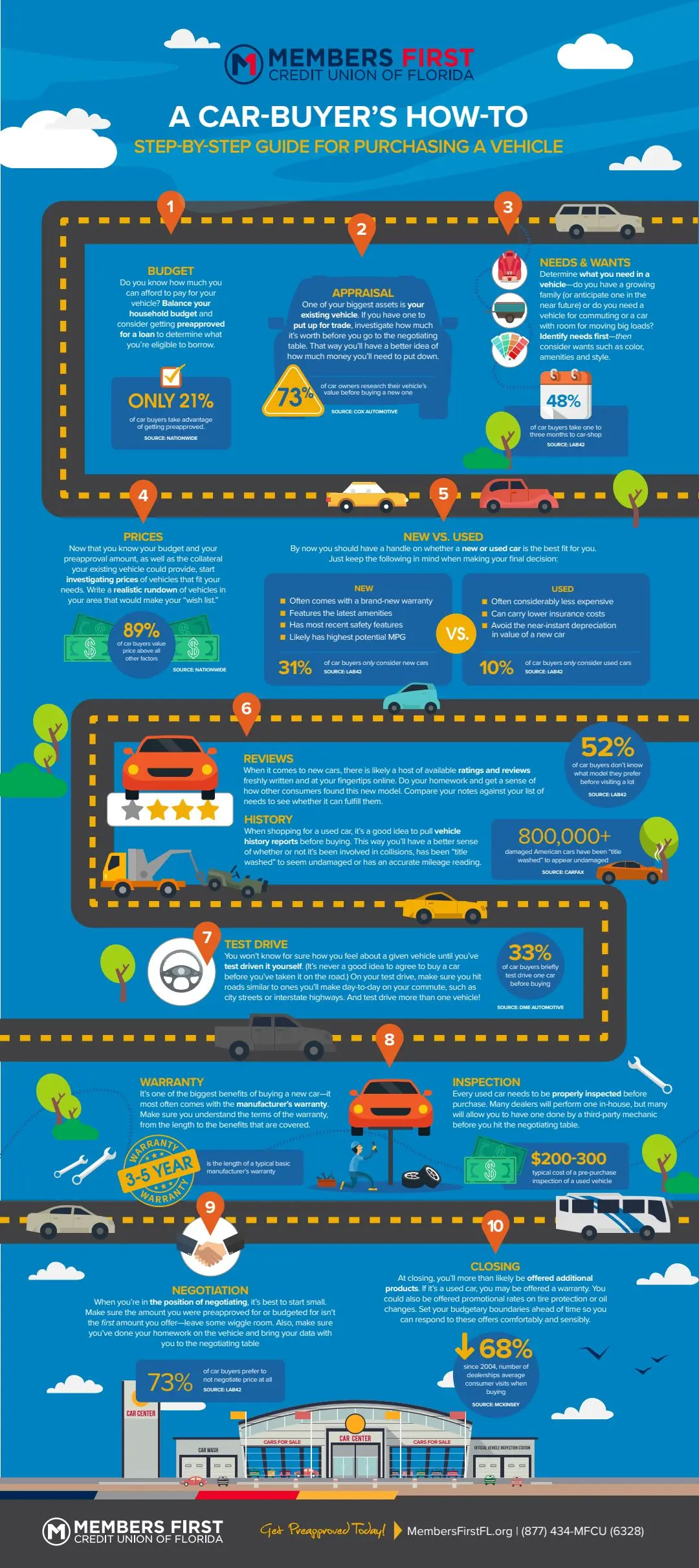
BUDGET
Understanding your budget is crucial before purchasing a vehicle. Balance your household finances and consider getting pre-approved for a loan to know your borrowing capabilities.
APPRAISAL
Your current vehicle is one of your most significant assets. Research its trade-in value to determine how much you'll need for a down payment when negotiating.
NEEDS & WANTS
Identify your vehicle requirements first. Do you have a growing family, need a commuter car, or require space for moving? After determining your needs, consider your wants like color and amenities.
PRICES
Once you have your budget, preapproval amount, and potential trade-in value, research vehicle prices that meet your criteria. Compile a practical wishlist of vehicles available in your area.
NEW VS. USED
By now, you should have a better idea of whether a new or used vehicle suits you.
NEW cars typically offer a brand-new warranty, the latest tech, enhanced safety features, and improved fuel efficiency.
USED cars are generally cheaper, often come with lower insurance rates, and dodge the rapid depreciation seen with new cars.
REVIEWS
For new car models, research online ratings and reviews to see how they measure up against your needs.
HISTORY
Before purchasing a used car, pull a vehicle history report to uncover any past accidents or odometer discrepancies.
52% of car buyers arrive at dealerships unsure of the model they prefer.
800,000+ damaged cars on the market have undergone "title washing" to appear undamaged.
TEST DRIVE
Always test drive vehicles before making a purchase. Choose routes similar to your daily commute and don’t hesitate to drive multiple options.
WARRANTY
New cars usually come with a comprehensive manufacturer’s warranty. Understand the coverage terms before finalizing your purchase.
INSPECTION
Get any used car thoroughly inspected prior to buying. Many dealers offer inspections, but you can also have a trusted third-party mechanic examine the vehicle.